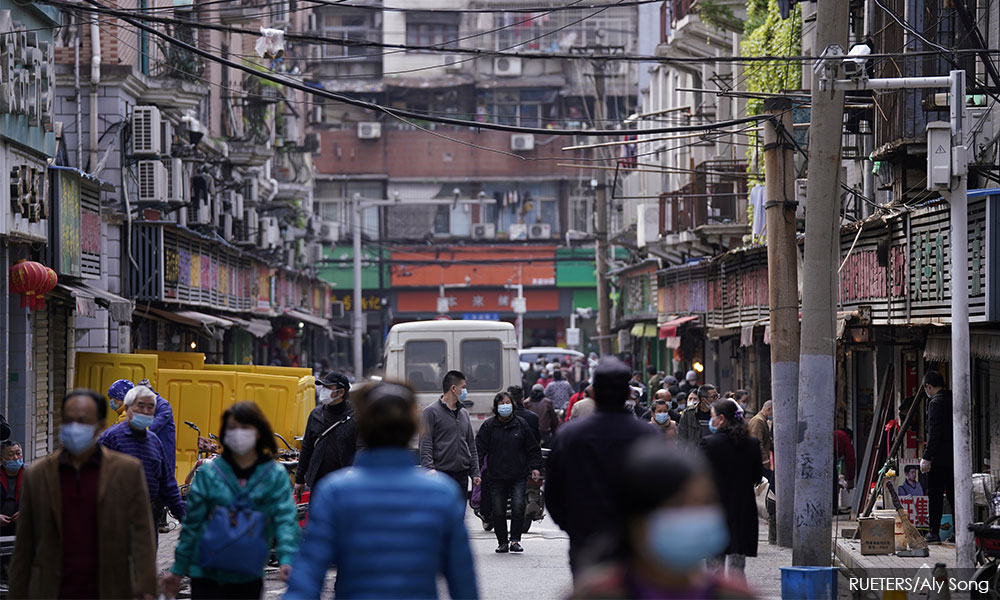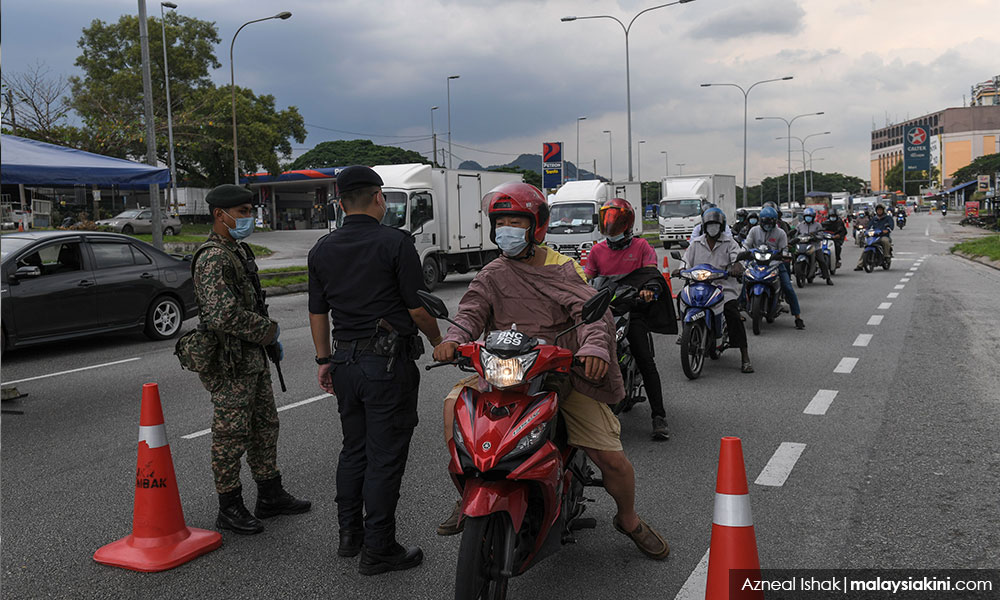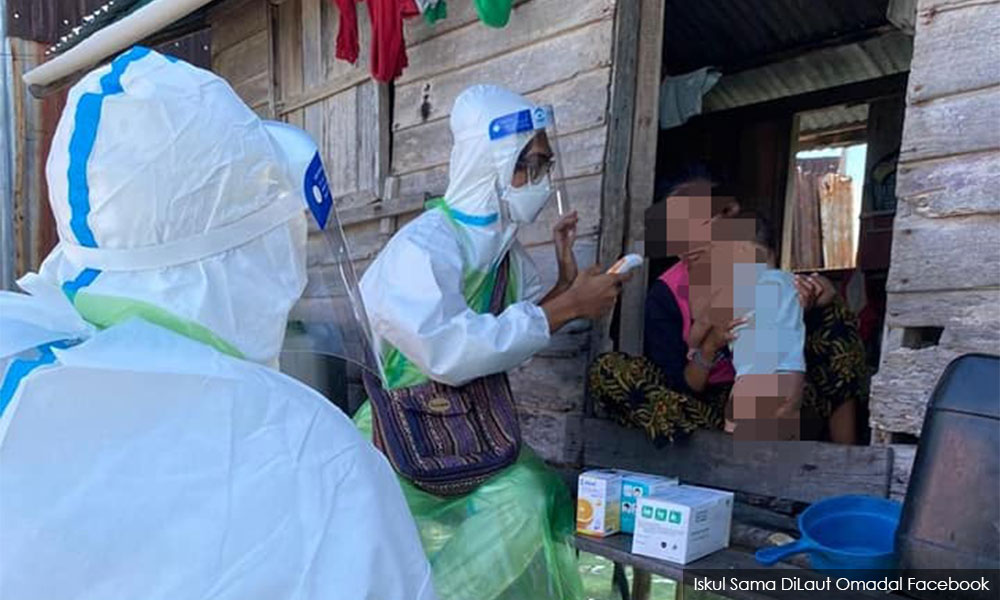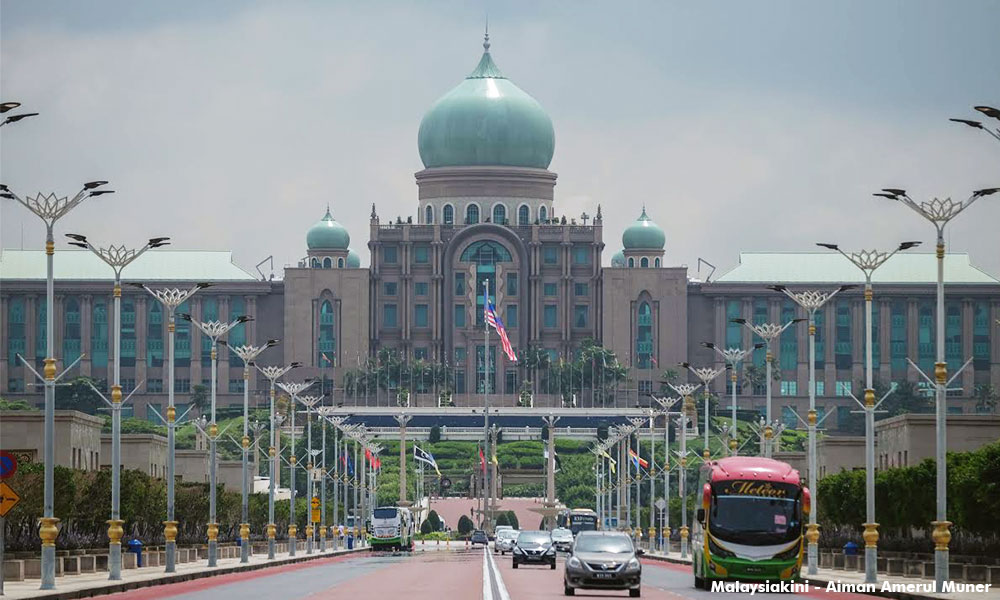MP SPEAKS | Granted, a year ago today, l vividly recalled of the eight Chinese nationals, who were quarantined at a hotel in Johor Bahru, after they became "close contacts" of an infected person in Singapore. The next day, Jan 25, Malaysia registered her first three positive cases of the Coronavirus Infectious Disease 2019 or Covid-19, by the novel virus SARS CoV-2.
Malaysia, nay the entire post-modern world, had never witnessed an "apocalypse" of this magnitude, since the 1918 H1N1 influenza pandemic. Also wrongly likened perhaps to a world war, the entire world was literally on its knees and its best defence was just to lockdown, the more draconian, the better it seems.
When only Vietnam and China, ironically the pandemic epicentre, recorded positive growth in 2020, the disastrous global economic impact was never comparable to any financial or economic meltdown of the recent past.
The pandemic has taken an enormous toll on lives and livelihoods. It could remain a serious global threat for years, maybe decades.
At the point of this writing, 96.8 million of the human population have been infected worldwide, while 2.1 million succumbed to the Severe Acute Respiratory Syndrome (SARS), especially of the oldies, and those with underlying comorbidities of hypertension, diabetes, hyperlipidemia, chronic kidney diseases (CKD), post-stroke and cancer patients.

Meanwhile, a better understanding of the pathogenesis of the disease unfolded very rapidly. China released the genomic sequence of the virus on Jan 10, 2020, and strategised for counter-measures immediately, paving the way for the development of vaccines in a historic timeline throughout the world.
Several drugs were also quickly repositioned early in the pandemic and allowed to be fast-tracked by FDA, in a desperate attempt, at ascertaining both of their anti-viral and anti-inflammatory efficacy and safety on Covid-19.
Malaysia comparatively enjoyed early success in the Containment Stage of the First Wave. Previous experiences of managing SARS and HIN1 was instrumental. For the record, when the Pakatan Harapan government left Putrajaya, there were only 24 positive cases altogether. Of those, 22 fully recovered and were discharged, while two patients were warded. No deaths were recorded and no positive cases were noted for 11 days thereafter, up to Feb 26.
The second wave began on Feb 27, 2020, triggered by the Sri Petaling religious gathering which took place from Feb 27 to March 1. The superspreader event brought the number of cases up immediately to 553, noticeably the highest in Southeast Asia then.
Two weeks later, on March 18, Malaysia imposed its first movement control order (MCO) or a "lockdown" for two weeks but extended further for seven weeks until May 12. The MCO was promulgated under the Prevention and Control of Infectious Diseases Act 1988 and the Police Act 1967, essentially barring people from travelling overseas and shutting down all businesses, except shops selling basic daily necessities and food.

The MCO was followed by the conditional MCO which ceased on June 9. Thereafter, the nation entered the recovery MCO between June 10 and Aug 31. In the following four months until mid-September, daily Covid-19 cases were below 100, mostly under 50 and occasionally hitting zero daily infection.
Just as we thought we had a relatively quiet September and had managed reasonably well in the second wave, to the point that some were under the illusion that Malaysia could even go forward without a vaccine, we may have inadvertently let our guard down. We thought that the hard part was over when in reality, it had just begun!
This brings me to the real bone of contention of how the Malaysian government and by extension, all of us fared, in managing the Covid-19 pandemic subsequently. Surely it is time to take stock of our own experience and better still, if we could be humble enough, to learn from other successful ones, like Vietnam and Taiwan.
I shall be honest and hopefully write without fear or favour, despite being the chairperson of the Selangor Task Force Covid-19 (STFC) and without qualm, as an opposition member in Parliament.
Again on the initiation of the third wave, it doesn't take much intelligence to surmise that the unfortunate state election in Sabah was undoubtedly a major triggering factor.
While the Health Ministry (MOH) could be blamed for allowing the state election with adherence to strict SOP, it is not entirely fair to stop at that. What precipitated the need of the state election would require more public accountability. But that will surely open wide Pandora's box. We could leave that for another piece.
Truth be told, many effortlessly recalled that Sabah already started reporting an increasing trend of Covid-19 cases due to the Benteng LD Cluster, from a prison that eventually spilt over to the nearby community.
That should have been a sufficient deterrent for us, politicians, not to engage in superspreader events like a state election where inter-state travelling will go against the grain of the SOP of avoiding the 3Cs - congestion, confined space, and conversation.

Evidently, these SOPs were trampled upon by none other than the political leaders, from both sides, perhaps. Never mind the non-observation of the compulsory screening and never mind the relaxing of the 14-day quarantine despite the high Covid-19 numbers in Sabah. Simply put, this was an obvious failure of the government of the day.
But beyond those issues of glaring negligence lies a more fundamental question of basic incompetence in strategic communication. Communication experts insisted on the critical need for consistency in public health messaging so as to endear compliance and trust.
Flip-flopping with differing protocols and procedures in a different time and according to different statuses of a person is a communication disaster in managing a pandemic of this proportion.
Quite noticeable was the unpreparedness to further adapt and remain agile to changing demands of the pandemic as it unfolds further. Urgent calls for ramping-up testings on RTK-Antigen, leveraging on automation and technology to speed up contact-tracing, multiplying numbers of front-liners doing contact tracing, case investigation, community testing, managing quarantine, health education and promotion, enforcement, improving access to diagnosis and turn-around time for diagnosis would warrant their numbers to be increased manifold, commensurately.
The general public couldn’t avoid observing that those in Putrajaya were obliviously blissful and to some degree complacent. Malaysia's leadership decided to celebrate, rather prematurely. Malaysia's performance in managing Covid-19 now ranks among the worst in the region.
Fast forward, going by the latest statistics, we have undoubtedly lost our hold on managing this latest outbreak of the third wave. According to "Our World in Data", Malaysia took just 38 days to double its total confirmed coronavirus cases from 83,475 cumulative infections on Dec 13 last year to 169,379 total cases on Jan 20, 2021.
Besides, Malaysia has the second-highest increase rate of confirmed Covid-19 cases in Asean, behind Thailand, which took 24 days to double their cumulative numbers. Singapore took 245 days to double its cumulative coronavirus infections to 59,197 on Jan 20, 2021, and reported 40 new infections on that date.
Even our regional peers of Indonesia took 66 days to double their daily new cases of 12,568, while the Philippines took a much longer period of 131 days to double their daily cases of 1885 (as at Jan 20, 2021), notwithstanding that both countries recorded cumulative cases of 939,948 and 505,939 respectively as on Jan 20, 2021.
Rightfully or not, we are now back to lockdown measures. But seriously, MCOs or lockdowns must be viewed as a last resort in public health intervention, especially when the economy and livelihoods were just about to be rebooted.
As deadly as the virus is, a measure of lockdown is equally deadly and devastating on livelihoods, the economy, businesses, causing huge unemployment and adverse impacts on school children's education, particularly of the lower-income group without access to online education, deteriorating household well-being, mental health challenges, plus escalating domestic violence and suicide statistics.

This invariably brings about a government that is unfortunately perceived to be trigger-happy to reprimand and threaten their citizenry of more imminent lockdowns, should numbers continue to hike. This is extremely baffling just as it is terrible.
Having learnt lessons from earlier outbreaks such as SARS and MERS, the strength of Malaysia's pre-existing public health system is admittedly commendable. Malaysia's initial Covid-19 response, again as I’ve said earlier, was among the best in the world.
However, rather than preparing and adapting for expected resurgences in cases, we allowed ourselves to be carried away by self-inflicted political distractions, while our frontliners toiled round-the-clock tirelessly and selflessly, some sacrificed their lives in doing this national service.
I may want to simplify the issue and attribute it to essentially three critical high-level weaknesses:
- Globally, the worst responses have been from leaders who have failed to surround themselves and listen to a diversity of empowered experts, who depend on evidence and data to make recommendations. Rather than choosing the route of openness, transparency, and a competition of ideas, Putrajaya has limited access to critical datasets and closed its ears to inconvenient narratives from independent experts.
- True or genuine leadership recognises that "no one is safe until all of us are safe". By devaluing and scapegoating certain subpopulations such as prisoners and foreign workers, Malaysia has failed to exercise true leadership with an inclusive and sensitive response and this has been devastating to all of us. This is extremely regrettable.
- "Lack of a genuine whole-of-government response". A "whole-of-government" and a "whole of society" response does not mean that our entire collection of "silos" is mobilised to dig their heels in, to defend their own narrow KPIs and jurisdiction - while only acting on Covid-19 matters within their narrow area. Rather, a whole-of-government response requires an attentive and agile leadership such that every part and level of the government is led to act in tandem towards the common national interest, galvanising all sectors; the federal, state, and local governments, the public and private sectors and various other stakeholders like the Civil Society Organisations (CSOs), and similarly not just health but education and economic sectors, with the inevitable compromises, collaborations and delegations that it would entail.
Finally, these weaknesses can be addressed moving forward - and there are already tentative signs towards addressing some of these quandaries.
However, given the devastating daily toll on both lives and livelihoods, there is great urgency to do so and to do so with humility and a willingness to make hard and timely decisions, as long as these are evidenced-based and done with the rakyat and nation's interest at heart.
DZULKEFLY AHMAD is Kuala Selangor MP, chairperson of the Selangor Task Force Covid-19 (STFC) and former health minister. - Mkini
The views expressed here are those of the author/contributor and do not necessarily represent the views of MMKtT.




No comments:
Post a Comment
Note: Only a member of this blog may post a comment.